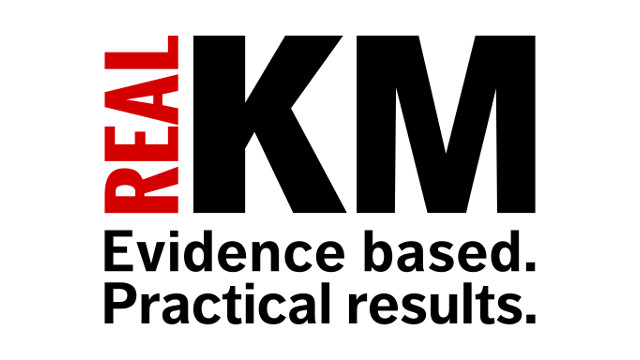
Knowledge management in 2016: the year in review
A mixed year for evidence-based thinking and decision-making
It’s vital that the knowledge we create, share, use, and manage is factual and evidence-based. However, in 2016 we’ve seen growing concern about the spread of misinformation and fake news, particularly online, and claims of the emergence of a post-truth era.
The Oxford Dictionaries Word of the Year for 2016 is “post-truth”, defined as “relating to or denoting circumstances in which objective facts are less influential in shaping public opinion than appeals to emotion and personal belief”. The term only came into widespread use in the past year, spiking at the time of the June Brexit referendum and even more so in the lead-up to and during the November United States presidential election.
It would be easy to conclude that we are entering very dark times indeed. But this overlooks the fact that in 2016 we’ve also continued to see growing public interest in science, particularly online.
In 2016, the average monthly on-site readership of academic news and views website The Conversation grew from 2.7 million to 3.8 millions users. The Conversation’s 2016 Stakeholder Report also shows that it now has a reach of 35 million through republication, editorial teams in five countries and over 43,000 registered researchers and academics. Other science websites and social media feeds have also become very popular, for example each ScienceAlert post receives a large number of shares.
At the same time that pseudoscience-embracing Donald Trump was elected as president of the United States, Barack Obama published the very first academic paper1 by a sitting United States president. Obama’s paper tops Altmetric’s list of the top 100 most-discussed journal articles of 2016.
In 2016, we’ve also started to see an increased awareness and understanding of the big problems in science and what should be done about them, as can be seen in the RealKM Quality of science and science communication series of articles.
While I question the notion of our entry into a “post-truth” era, the rise of fake news and the election of a pseudoscience-embracing United States president are serious concerns. What will 2017 bring?
RealKM highlights
Throughout 2016, RealKM Magazine has published a wide range of articles on knowledge management (KM) and related disciplines including communications, psychology, sociology, and management research.
Our most popular article, David Williams’ Components of a knowledge management system, now has over 3,500 views.
KM fundamentals
In 2016, David Williams has brought us three of RealKM Magazine’s most popular and most important articles: A model for understanding knowledge systems, Components of a knowledge management system, and A knowledge flow notation for designing knowledge management systems. David is the President of the Australian Society for Knowledge Management (AuSKM) and is on the Board of the Institute for Information Management (IIM). He also lectures at the University of Canberra on Knowledge Management Systems.
Three series of articles presented comprehensive analyses of important aspects of KM:
- Dr. Andre Saito gave us the outstanding Educating knowledge managers series, in which he proposes a model of knowledge management competence which could be used as the basis for educating KM staff.
- RealKM founding editor Stephen Bounds gave us essential practical advice on modelling and enhancing how decision-making occurs in an organisational context in his Agile decision-making series of articles.
- Dr. Maureen Sullivan’s Personality & technical knowledge management systems (TKMS) series guided us through an in-depth exploration of the relationship of personality to technology acceptance of technical knowledge management systems.
I presented a range of articles discussing the findings of recent KM research, including:
- Trends, issues and challenges in knowledge management and sharing: research review
- The potential for gamification in knowledge management
- The interplay of individual values, team work, and knowledge management
- The impact of social media on knowledge management
- The nexus between knowledge management and innovation
- Factors influencing employees’ willingness to share knowledge
- Artifacts in knowledge management research
- A classification framework of knowledge transfer issues across value networks
- Is the Olympic Games Knowledge Management (OGKM) program effective?
- Case Study: A knowledge strategy process for natural resource management organisations
- Smart cities and knowledge management
- A longitudinal case study of past debates and future directions in knowledge management for development
Our fascinating new Systems thinking and modelling series commenced this month. This innovative series uses interactive models to establish a far better and enduring basis for mastering systems and feedback.
Insights into KM-related topics
Sally Chik continued her outstanding insights into a wide range of KM-related topics with these articles:
- Analysing the attention economy
- Insights into passwords: secrets and security
- Society under surveillance
- The Emoji Evolution: The short and long of the emoji
- Challenging change management: The way out is through
- Digital detox: Disengage from the technological trap
- “Siri, I was raped”: Smartphone virtual assistance in crisis situations
- Social media at work: Research
- Time flies when you’re using technology
- Internet investigations: Hoaxes, algorithms and ethics
- Digital dilemmas: Obstacles to a paperless future
RealKM founding editor Stephen Bounds’ insightful articles included:
- Sarcasm triggers creativity and abstract thinking
- How to use data in ways that actually work
- An objective perspective on wisdom
- Why you get “results” when you pay for results
- Critical Eye: Evidence of the importance of curation
- Editorial: Understanding trade-offs in system optimisation
- Critical Eye: Bird Island experiment claims to prove usefulness of KM
- Editorial: Failure demand at the heart of dissatisfaction with Centrelink
- To persuade, think like the person you want to convince
- Yammer loses Community Support Managers
The articles I presented included:
- The knowledge management implications of the Trump vote
- Are the “dark triad” personality traits really that bad?
- Can only humans have knowledge?
- Should knowledge managers become more active in policy development?
- Email isn’t dead, but it is ageing: How young people now communicate online
- What does your face reveal about you, and who is the better judge: humans or AI?
- What’s up with the big car makers?
- Divided views on Australia’s proposed copyright law reforms
- Medical groupthink: is that surgery, procedure or medication really necessary?
- Cultural dimensions and factors: use and misuse
- Case Study: The dangers of information silos
- Case Study: How to overcome resistance and denial when engaging stakeholders
KM in key business and industry sectors
Throughout 2016, articles introducing new research findings have been added to the ongoing ad hoc series KM in small and medium enterprises (SMEs) and KM in the construction industry.
KM and IM initiatives
We’ve also featured articles profiling a range of significant knowledge and information management initiatives established or advanced in 2016, including policy development initiatives. These initiatives include:
- UNESCO’s advancement of knowledge societies
- The 20th anniversary of the Internet Archive
- Wider adoption of the Hypercat interoperability standard for the Internet of Things
- Information workforce mapping in the UK
- Launch of the UNESCO MILCLICKS media and information literacy initiative
- Production of Knowledge Principles for Government in the UK
RealKM Connect
The year culminated in the launch of RealKM Connect, a strategic knowledge management forum commencing in Melbourne in 2017. The RealKM Connect workshops will provide hands-on professional development for people who want to take their KM skills to the next level.
Each workshop will include information on the scientific theories and evidence behind each topic covered, as well as challenges to help participants put what they learn into practice when they return to their organisation.
Reference:
- Obama, B. (2016). United States health care reform: progress to date and next steps. JAMA, 316(5), 525-532. ↩
Also published on Medium.


